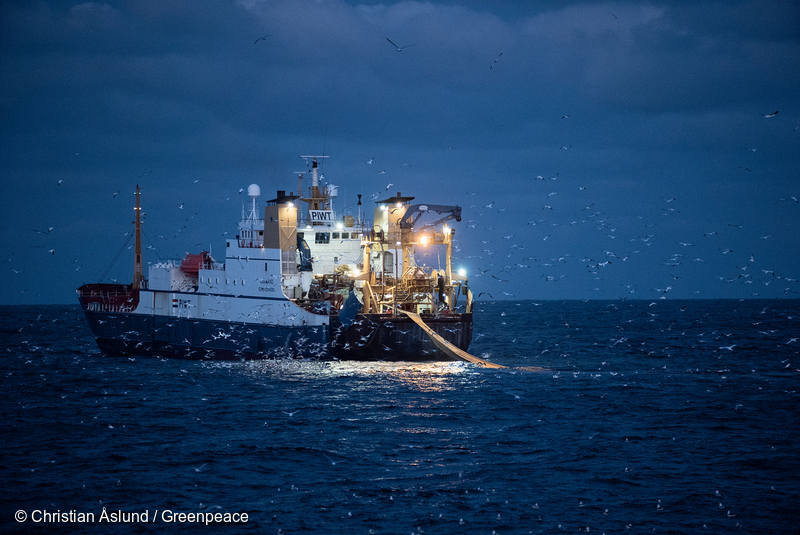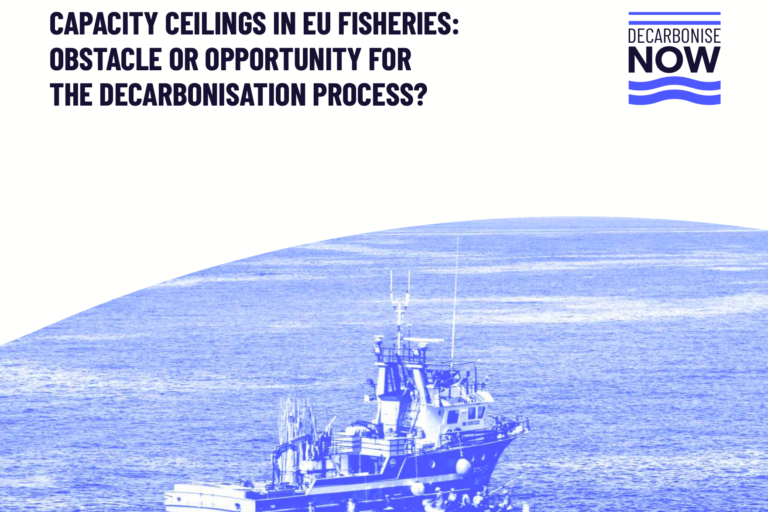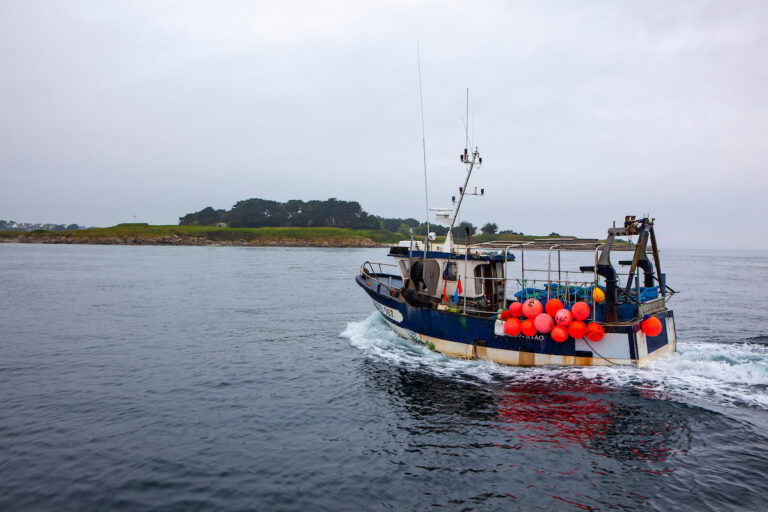
EU fishing fleets are heavily supported by zero taxation rates on fuel – which, in effect, is a way of subsidising the use of fossil fuels. By exempting the fishing sector from fossil fuel taxation, member states are willingly allowing the fishing sector to privatise its gains while socialising costs relating to climate degradation.
Pursuant to the European Union’s Energy Taxation Directive (ETD), EU member states are bound to minimum taxation rates for a wide range of energy products, including heating and motor fuel, electricity from renewable energy, and biofuels.
In addition, through the ETD, member states have bound themselves to zero taxation rates for maritime fossil fuel – including fossil fuels used to power fishing vessels. Removing these fossil fuel subsidies in line with the ‘polluter pays principle’ would not only lead towards the decarbonisation of the fishing sector, it can also result in a better distribution of the financial burdens, to the benefit of small scale fishing activities and coastal communities.
It is estimated that revenue that goes uncollected in the EU due to the tax exemption on fishing vessel fuels amounts to about €1.14 billion annually, corresponding to €58 million from small-scale fisheries, €889 million from large-scale fisheries, and €189 million from distant water fleets. This is in line with other estimations that fuel tax exemptions for the EU fishing fleet amounted to around €1.05 billion on average per year over the period 2002–2011. ClientEarth, together with Our Fish, projected a comparable estimate of €700 million – €1.4 billion.
Resolving the carbon pricing deficit of the ETD would be a key contribution to transitioning to a decarbonized fishing sector. Arguably, as pointed out by Enric Letta in his report ‘Much more than a market’, swift agreement on a revised ETD is also necessary to provide the right incentive to renewable energy across the EU’s single market.
The bottom line is that both the current ETD’s tax exemptions and the applicable minimum rates are simply unable to help the EU reach its climate goals.
It is therefore disappointing to note that under the outgoing Belgian Presidency of the European Union, member states failed to reach a consensus. Given its importance, we are hopeful that this file is still on the radar of the recently inaugurated Hungarian presidency – albeit not as a priority.
In its efforts to reach a compromise on a revised ETD, ClientEarth calls upon Hungary and the member states to take due account of the interaction between the ETD and state aid control by the European Commission (‘Commission’), and to consider the following points in pursuing a compromise.
In principle, any differentiated taxation at national level of undertakings that are in a similar factual and legal situation, can result in state aid to the company benefiting from the lower tax rate compared to the reference rate. The lower rate conveys an advantage to the beneficiary, consisting of mitigation of the normal fiscal charges (the reference rate). By way of example, exemptions to a corporate (income) tax rate for companies in specific sectors (e.g. the energy intensive industry sector) will in principle result in state aid. The assessment is no different for tax differentiation under the ETD, to the extent that it leaves member states with discretion to differentiate taxation levels.
State aid is subject to state aid control by the Commission. State aid control implies that state aid must be approved by the Commission, before it can be implemented. For state aid to be approved, the aid must be necessary to contribute to one of the objectives listed in Article 107(3) of the Treaty on the Functioning of the European Union (e.g. to facilitate the development of certain economic activities), and the aid may not disproportionately affect competition and trade in the internal market.
In a nutshell: it is not because the ETD allows for tax differentiations, that these differentiations are exempt from state aid control or are automatically allowed under state aid rules.
Under the ETD, there are roughly three types of tax differentiations that can be subject to state aid control.
- tax differentiation between energy energy products that are not subject to ETD minimum taxation rates,
- tax differentiation above minimum ETD taxation rates and,
- differentiation below minimum taxation rates in accordance with the ETD.
State aid control is particularly relevant as regards the last category, which is applicable to electricity produced from a range of renewable energy sources. The relevance of state aid control for this category is that reductions and exemptions to ETD minimum rates automatically result in state aid (the minimum tariff representing the reference tariff).
In contrast, mandatory tax exemptions – or zero rates – such as applicable to fossil fuel for fishing vessels, escape state aid control entirely. This is because these rates do not leave any discretion to member states. This means that €700 million to €1.4 billion yearly subsidy is granted to the fishery sector, without any form of state aid control.
This staggering fiscal advantage to the fishery sector comes on top of other public support to the fisheries sector, which often mainly profits the large scale fishery.
- The overall budget of the European Maritime, Fisheries and Aquaculture Fund (EMFAF) for the period 2021-2027 amounts to €6.108 billion. Distributing this budget evenly over seven years would amount to almost €1 billion per year to the fishery sector. The EMFAF’s outdated objectives do not sufficiently address the climate and biodiversity crises.
- In 2021, member states’ expenditure in the fishery and aquaculture sector that was subject to state aid control amounted to €75.44 million. This excludes de minimis aid to the sector. De minimis aid refers to “small amounts of aid”, which is exempted from control by the Commission. This aid is capped to approximately €325 million per three years – all member states combined. This aid has a high potential of negative environmental externalities, because Member States are essentially free to decide how to spend this aid – on what, and to whom.
In conclusion, considering the overall amount of subsidies to the fishery sector and the interaction with the state aid control mechanism, we urge EU member states to work towards a consensus, under the Hungarian presidency, that abolishes tax exemptions for fossil fuels destined for fisheries use.
Lorenzo Fiorilli is a Lawyer for Public Finance, Energy Markets, and Competition at ClientEarth



